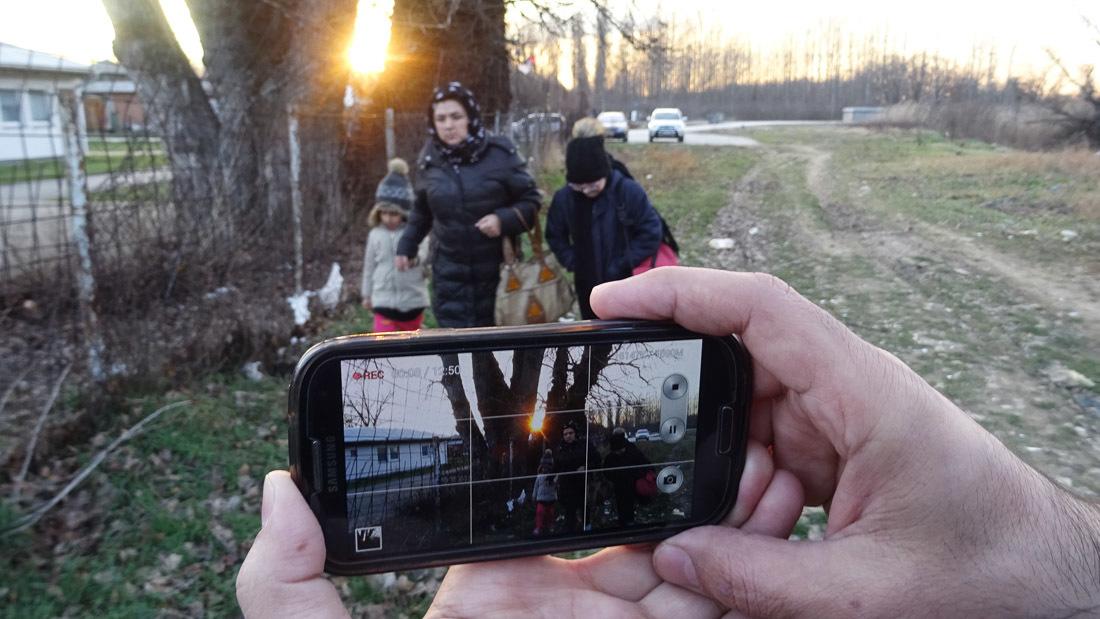
The True Life Fund recipient this year is the film “Midnight Traveler.” The film is the first recipient of the fund where the subjects of the film, Hassan Fazili and his family, are also the filmmakers.
The film documents the story of the Fazili family fleeing Afghanistan under death threats from the Taliban.
“I think for anybody, if you look at them, you think ‘oh, that could be my family,’” True/False co-conspirator David Wilson said. “They’re able to document that entire journey themselves because they’re shooting it with iPhones. It brings an immediacy and a level of empathy that I’ve never seen in that kind of story.”
Since its inception in 2007, the True Life Fund has worked to give back to the subjects of films featured at True/False Film Fest.
After Wilson and and Paul Sturtz, the festival’s other co-conspirator, attended a film festival in Europe in 2007 with a similar component, they were inspired to create the fund. The fund awards the subjects of one of the festival’s documentaries each year with money amassed from individual donors and screening donations.
According to the True/False website, the fund has raised nearly $300,000 so far for various documentary subjects.
“It’s really tricky dealing with money in documentaries,” Wilson said. “People tend to not pay their subjects for good journalistic reasons. It can be a lot more involved to be the subject of a documentary. It’s often about having some of the hardest parts of your life put out for an audience to judge or discuss.”
In appreciation for those seen on screen, the fund gives its earnings to subjects who are often facing substantial obstacles.
“From the beginning, we saw it not as charity, but as the completing of a feedback loop,” Wilson said. “They give us something and we are able to give something back. Money is sort of the smallest thing in some ways, but it is tangible, and it is real, and it makes a difference in people’s lives.”
By watching the documentary, there is much one can learn about the refugee experience, Dave Cover, co-lead pastor of The Crossing, said.
“It’s basically an adventure story that has this current events twist to it because it’s part of the long story of people migrating from violent areas into more stable areas,” Cover said. “It helps us have a better understanding of the kind of things that motivate people to become refugees, but also the kind of things that are the typical struggles refugees have to go through to find safety so they can survive.”
As a church, The Crossing sponsors the True Life Fund. After going to his first True/False around 13 years ago, Cover knew that he wanted the church to be involved with the festival in some manner based on the artistic and intellectual benefits he saw the festival bring to Columbia.
The Crossing approached True/False a year after the fund had been established.
“What they wanted was an opportunity to support the community of Columbia,” Wilson said. “They wanted to not be separate from Columbia, but of Columbia. And that felt good, that felt real, that felt like a shared value that we could build on.”
Though there are differences within this partnership, it has allowed True/False and The Crossing to find unexpected common ground.
“I’ve gotten to know the pastors at The Crossing,” Wilson said. “We personally disagree on a lot of things theologically and politically. But I’ve been consistently surprised at the points of commonality that we have, and points where we’re not as far apart as I thought we were. We have found that True/False films have been a great way to talk about big ideas.”
Supporting the True Life film is consistent with the overall mission of The Crossing because it allows the church to learn more and to foster empathy, Cover said.
“We’re all for anything that helps us become more empathetic as a church and helps us become more informed people,” Cover said. “Being a part of the True/False Film Fest always makes us more emotionally intelligent, but it also makes us more intelligent when it comes to the issues that are happening on our globe today.”
The fund has also allowed True/False to experiment more and to try out new ideas of what a film festival can be or do, Wilson said.
“I think the True Life Fund is an idea that stuck,” Wilson said. ”It’s something that we’d love to see other festivals pick up and adopt.”
_Edited by Joe Cross | [email protected]_